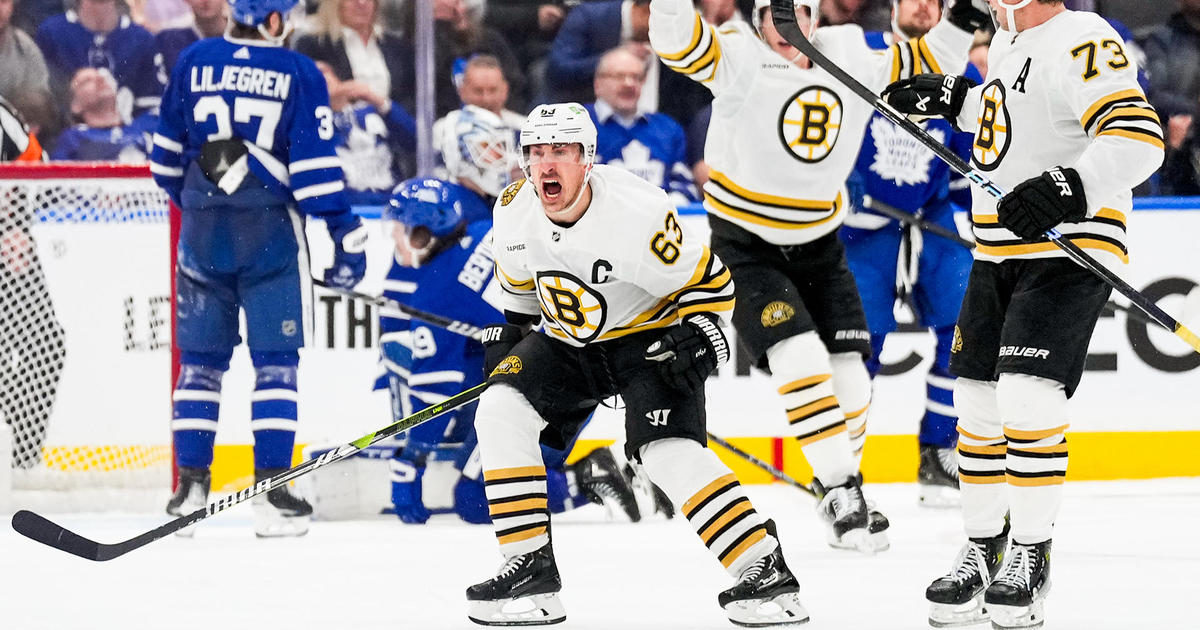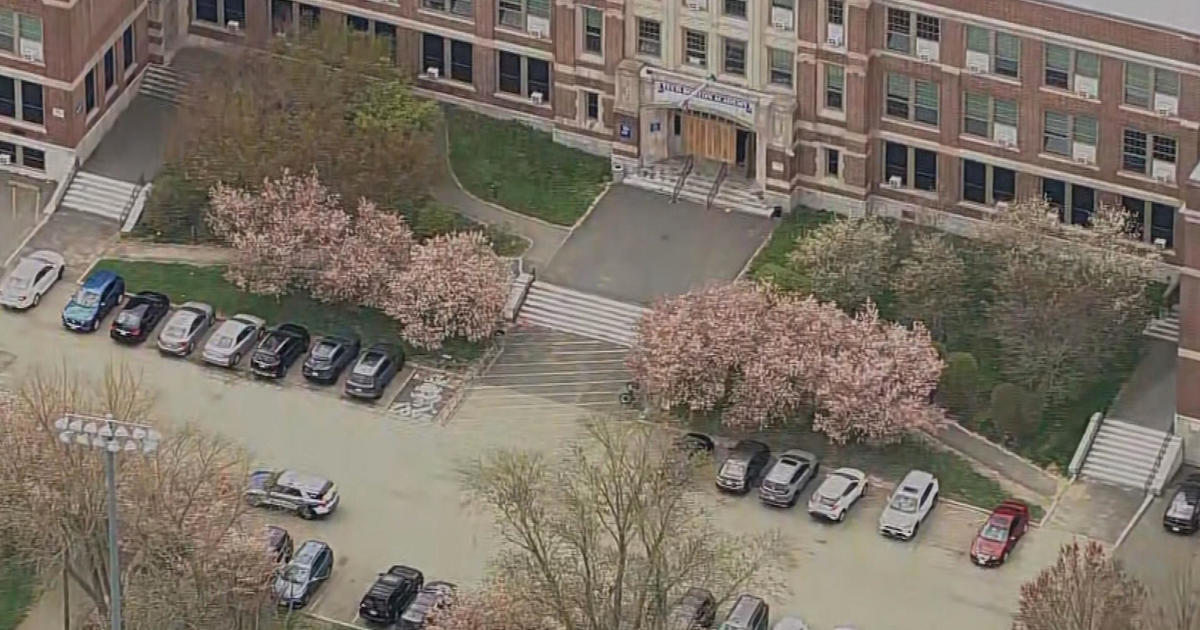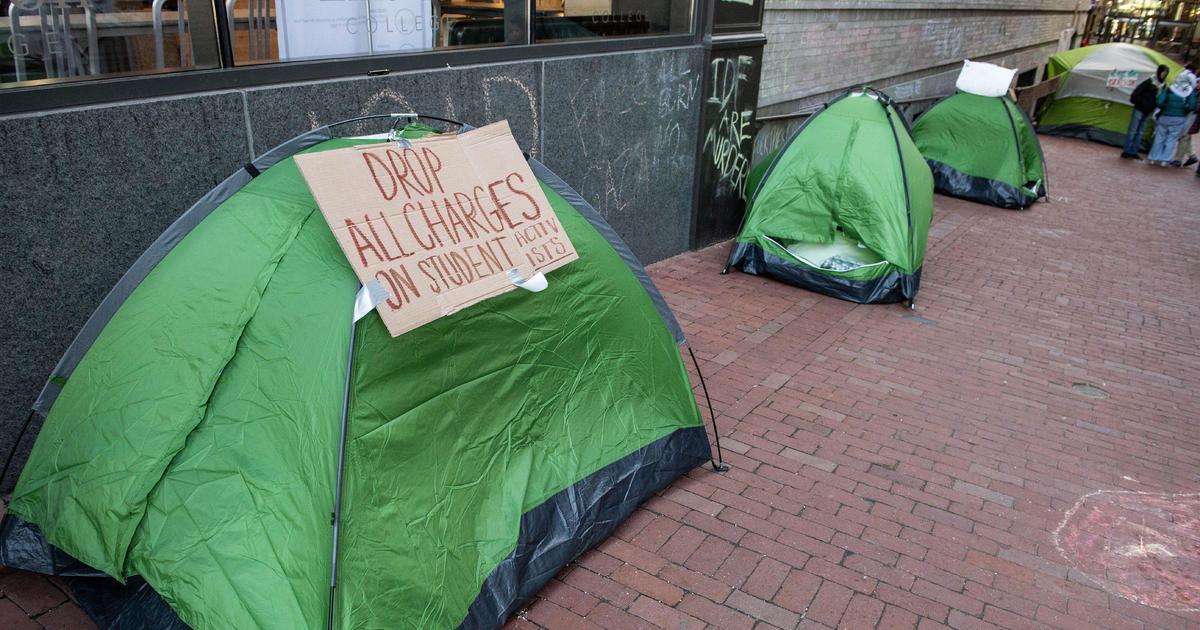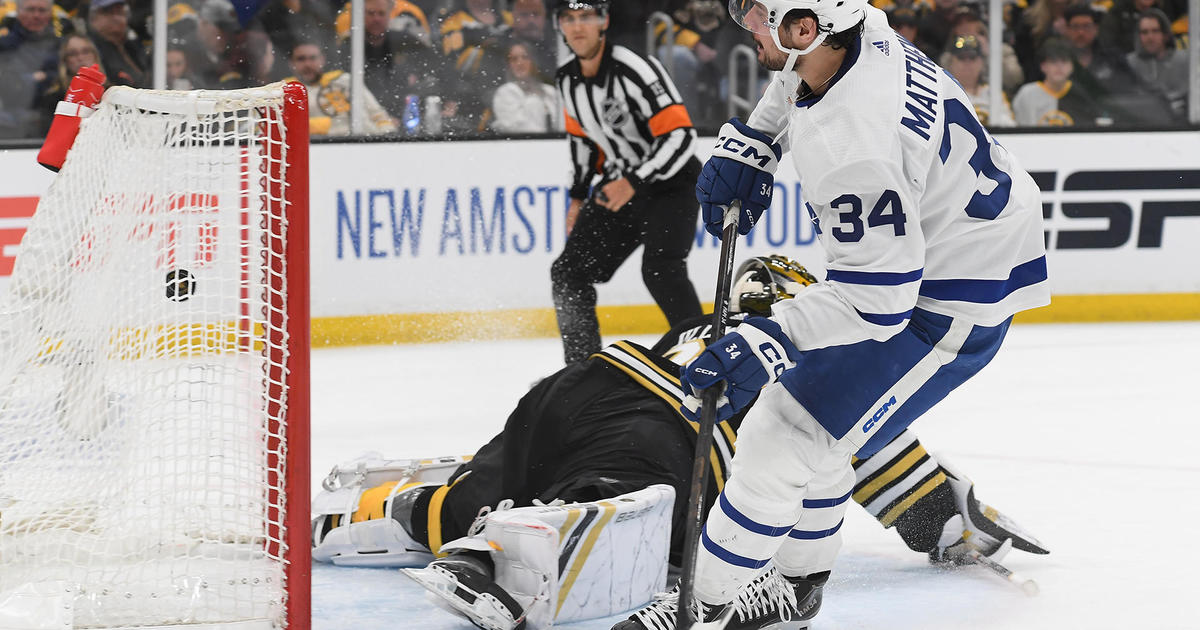Robb: Celtics Using Analytics To Invest In Students With 'Step Your Game Up' Program
By Brian Robb, CBS Boston
BOSTON (CBS) – Like many sports franchises across the country, the Boston Celtics are firmly engaged in supporting the New England community. Team ownership and members of the organization are constantly contributing their time and resources in hospitals, community centers, schools and fundraising efforts for important causes, such as at-risk youth.
Recently, the Celtics have put a unique and perhaps revolutionary spin on their efforts with young students, thanks to the collaboration between the team's front office and community outreach employees in the Step Your Game Up program, presented by the Celtics Shamrock Foundation. The program aims to identify at-risk middle school students, offer them agreements that link progress in school attendance and academic grades with incentives connected to the Celtics (i.e. attending a game, meeting players, etc.).
While the idea of an incentive laden program is not unique on itself, the deep tracking of students' progress within the project is. Celtics Director of Basketball Analytics David Sparks and assistant general manager Mike Zarren have worked together to use their statistical and programming expertise to track the progress of students involved in the program and monitor the impact of their social investment by the team.
Though the program is in its infancy, Zarren, Sparks and Celtics community relations manager John Borders presented their encouraging findings (improved attendance and grades from students in Lawrence public schools) from the data in a presentation at the MIT Sloan Sports Analytics Conference this past weekend at the Hynes Convention Center. CBS Boston caught up with Sparks and Zarren after the presentation to learn more about the program, the intersection of community outreach and analytics, and their hopes for the spread of the program across the sports landscape.
Q: What was the biggest factor in the Celtics electing to combine their resources from the community and the front office to put together collaborative incentive program like this for students in the community?
Mike Zarren: This was all from Judy Pagliuca. She came to us saying she wanted to start a brand new community program, but it had to have three goals. 1. It had to help middle school kids, the ones most at risk of dropping out of school in high school. 2. It had to be measurable, using objective criteria, so we could track the program over time and the effects of it. 3. It also had to bring together different specialities inside the Celtics, which was an interesting third point. [Former Celtics Director of Community Relations] Matt Meyerson and I sat down and thought an incentive structure for the program would make some sense. That was the hot thing in behavioral economics at the time and that was the genesis [of the program].
Q: What's the biggest takeaway you guys can see thus far with kids when putting together an incentive program into action?
David Sparks: The Celtics do a lot of work in the community and there is lots of anecdotal evidence that kids respond well to it and it makes a difference. You can see our community relations department does a great job and really does a great job in lots of different areas. I think one thing I really like about this is being able to put a number on the extent to which its having an effect.
MIke Zarren: We're sure we're having an impact on a lot of kids. We're positive of that. How much of an effect and does it persist? This kind of program will test those things.
David Sparks: One thing I like about presenting it [at the MIT Sloan Sports Analytics Conference], this way other teams, companies and philanthropies can start from where we have the program now, instead of starting from scratch. We have some evidence that the way we've done it works. It should save some development time and get people up and running faster with it. Ideally, I would be very interested in seeing data from other places, to see if its robust and applicable in different regions and different
Q: Have other teams or organizations already started to reach out to you guys after seeing your presentation at Sloan?
Mike Zarren: Yes. We've had a number of teams and at least one league has reached out to us to talk about getting the information in how to do this. We don't think we're experts at it yet, but we have some evidence that it worked for us so we think that's pretty cool.
Q: The program is obviously very young, so has that forced you guys to make tweaks on the fly over the course of the program? What kind of issues are you running into on that front?
David Sparks: In some cases, we're sort of forced to change things on the fly. For example, the Celtics' schedule and school schedule didn't align perfectly this year. One of the incentive rewards was not a game this year, it was an evident at the Celtics practice facility with the players. I'm sure that motivated differently than going to a game would. Things like that and trying to identify the appropriate standards for increasing performance and things like that. They've all sort of evolved over the course of the program.
Mike Zarren: We've only had the data on it being significant for a short time, so now that we've done the first crack of the study of the overall effects of the program, we'll have time to tweak it before the start of next year.
Q: The life of a front office employee in the NBA is quite the grind from a schedule impact, given its demands and hectic travel schedule. Is it nice to have an opportunity like this to give back to the community?
David Sparks: One thing I really like about it is that I have a comparative advantage in doing data analysis but I don't have a comparative advantage in going out in the community and building playgrounds, things like that. This is a skill I have that came in as useful in the situation and it's sort of gratifying to see I can contribute even though I'm not out working with the kids every day like members of our community relations team. I'm thankful for the opportunity just to use the skills I have to contribute in a way I was never expecting to be able to contribute.
Brian Robb covers the Celtics for CBS Boston and contributes to NBA.com, among other media outlets. You can follow him on Twitter @CelticsHub.



